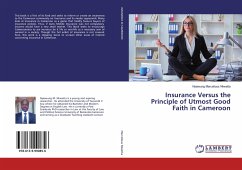As we enter the 21st Century, with most countries in
the world affected by 'greying' of the population,
there has been a resurgence of interest in whether
people ought to have a right to determine the manner
and timing of their own death. Until now, the
debate surrounding this issue has been highly
polarised. This book adopts a different approach.
By examining changing sensibilities and attitudes to
death and dying as expressed in case law in the
common law countries (defined as Australia, England,
the United States of America, Canada and New
Zealand) and the Netherlands, government policy,
medical ethics and practice, the book encourages the
reader to adopt a more nuanced approach. The
analysis sheds light on some fundamental
misunderstandings in the right to die debate and
suggests how we might move toward allowing people
greater flexibility in choice at the end of life.
This book should be especially useful to
professionals whose work involves end-of-life issues
whether they have a purely academic interest in this
important topic or are 'at the coal face,' providing
clinical care.
care.
the world affected by 'greying' of the population,
there has been a resurgence of interest in whether
people ought to have a right to determine the manner
and timing of their own death. Until now, the
debate surrounding this issue has been highly
polarised. This book adopts a different approach.
By examining changing sensibilities and attitudes to
death and dying as expressed in case law in the
common law countries (defined as Australia, England,
the United States of America, Canada and New
Zealand) and the Netherlands, government policy,
medical ethics and practice, the book encourages the
reader to adopt a more nuanced approach. The
analysis sheds light on some fundamental
misunderstandings in the right to die debate and
suggests how we might move toward allowing people
greater flexibility in choice at the end of life.
This book should be especially useful to
professionals whose work involves end-of-life issues
whether they have a purely academic interest in this
important topic or are 'at the coal face,' providing
clinical care.
care.








